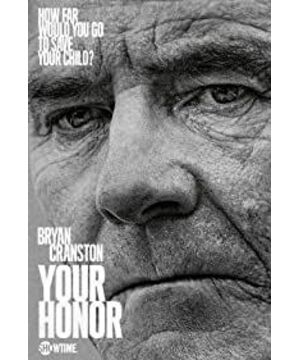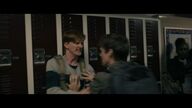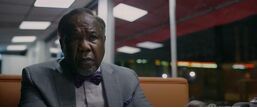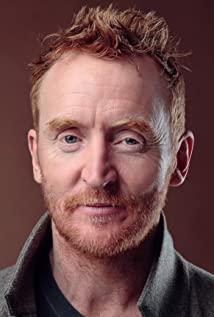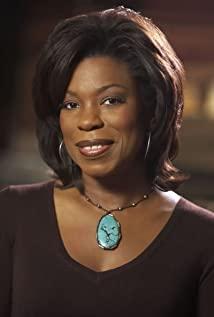In the singing, Andy walked out of the prison imposed on him. In the singing, the judge walked into the cage of his own organization.
In the dark morning, muddy breathing, heavy feet, and wet back, the first few shots have made people suspicious: this will not be an easy story.
The oncoming tram shows that our protagonist is running on a track where he shouldn't be running. This is undoubtedly a metaphor.
The extremely high bird's-eye view somewhat suggests that the play will scrutinize the occurrence of this story with an extremely high moral eye.
The protagonist enters a cemetery and sits in front of one of the tombstones. Another scene that appeared in parallel was a young man holding up a picture of a middle-aged woman from a desk with a sad look. We can easily think of the message that the lens is trying to imply: this is a father and son, the woman in the photo is their wife and mother, and the woman has passed away.
The rhythm is accelerating, and the boy is preparing to go to school. His use of the inhaler inadvertently informs us that the boy is a patient with asthma.
He took the photo frame with him, hurriedly cut out a few small chrysanthemums, put them in the passenger seat, and finally threw the inhaler beside him—this important prop was emphasized.
When the car drove out of the courtyard, the neighbor across the street was watching.
The scene falls into another family, a family of four, parents and children, the sound elements and light in the scene are bright and energetic. This is totally different from the isolation, darkness and silence of the previous family.
The beloved son got a surprise birthday gift from his father-an excellent motorcycle.
So at this time, the two teenagers were already driving on the road. The swinging of the picture between the two also gave rise to ominous and uneasy conjectures-perhaps there will be a tragic car accident.
But the suspense will be temporarily delayed, and the protagonist of this play will have to complete his morning jog. He came to the door of a simple low house, visited and surveyed it for a while, and left without speaking. There are three black children in the house, and no guardian is at home.
In the soundtrack dotted with restlessness, there is once again a cross-shot of two teenagers driving.
The teenager in a small broken car stopped in front of a shop that was obviously located in a black neighborhood, and placed the mother's photo and chrysanthemums in front of the shop. It is reminiscent that the death of the teenager's mother was related to this place.
The approach of a group of blacks of the same age made him nervous, and drove away in a hurry.
The strong hostility of the black youth and the broken photos on the ground slowly lure the potential black and white problems in the play.
The hostility of the black community made white teenagers more and more nervous. Asthma attacks occurred, the inhaler was bumped under the seat, and the details of the traffic accident were buried step by step.
At this time, an accident happened. Bang! The body of the boy who flew out rolled in inertia, and the motorcycle stuck under the front wheel of the car sparked violent sparks on the ground.
The black youth in the car chasing the asthmatic teenager had no reason not to see the accident, but they drove away without help.
A dog witnessed all this. Here, the dog’s eyes have at least the same meaning as the neighbor’s sighting, and they play the role of a bystander perspective—not necessarily the role of a witness. They represent a kind of silent gaze, with a color of detachment. The eyes of nature just look at the occurrence of sin and how people behave themselves.
After the car accident, the details were recorded extravagantly, and they were simply described in detail. The whispered wheel hub, the slowly spinning helmet, a shoe scattered in the foreground, a car with a drained chassis, a few crows, and the white noise of a motor that has not been turned off.
The carriage remained silent for a long time, and the camera slightly pushed towards the car body, so that we could hear the flustered and depressed heartbeat of a teenager with asthma. Ah-the sound of the car door opening seemed to gently unscrew a pressure valve the size of a can, which was a sigh of relief. But the tight breathing is still like the symptoms of asthma, and it is not easy for a moment.
The heavy breathing sound perfectly controlled the chest cavity of the audience and mastered the rhythm of the whole scene. The back-following camera draws the audience into the emotional position of the person involved, and the frontal facial shot is like stamping the perpetrator's expression. The panic, cringe, and dazedness also make the viewer feel at a loss.
The two white teenagers finally met. Their family circumstances, lives, and personalities are completely different. This is probably the first time they have met in their lives, and it will be the last time. But they—and a young black man we will see later—have one thing in common. They are the same age. An accident that has nothing to do with malice has overturned their destiny and entangled their lives closely, and even in the not-too-distant future, it will also disturb the order of the city, as well as the morality and interrogation deep in human nature. Guilty.
The leg bones turned over, blood was flowing in the back of his head, and the invisible broken internal organs were even more terrifying. The motorcycle boy was no longer saved, and he was still wearing his sister's yellow shirt. This exquisite face with slender curled eyelashes is like a beautiful young man in a medieval religious painting. His whimpering lips want to say something. This is an unexpected way and moment for his last words.
The strong pressure of looking directly at death caused the asthmatic teenager to cry. He put his ears close to the motorcycle teenager's lips, but the language could never take shape, and the "last words" that the airflow ejected from the cavity was plasma.
The beautiful eyes in the beautifully curved eyelids soon dimmed, and the lens was still cruelly rendering tyrannical death, and life was the most alive in the face of sudden death. It's like witnessing a river that is empty and irreversible, so short-lived, so fragile and gorgeous. However, this fleeting scene stays in the eyes of the witness forever. The dead are dead, and the living are well?
Severe suffocation is not only reflected in the scene, but also substantially prevents asthmatic teenagers from breathing. The long crawling and suffocating groans strangled the audience's throat for the last time. Accompanied by this delay of physical pain is actually spiritual pleasure. The movie is not a sadistic ritual. When the inhaler finally came into use, it not only saved the asthmatic teenager from suffocation, but also relieved the audience's physical suffering-but at the same time relieved the audience's spiritual feast. The button of the inhaler here not only relieves the patient’s symptoms in a practical sense, but also relieves the "audience's asthma" in an abstract sense. The rhythm and atmosphere inside and outside the story changes accordingly, and the plot and the audience’s emotions are driven into a new one. In orbit. It was also at this time that the asthmatic teenager "was out of the country", the fear of sin instantly drove away justice and guilt, and he fled. The wolfdog's squatting and tongue probing can naturally be understood as preparations for bloodthirsty, but it also reveals the retention and disappointment of the juvenile from the image consciousness—just like the psychology of the audience.
When the wolfdog licked and escaped the scene of the blood of the deceased and the lines of the court pillars that were deliberately emphasized in the overhead shot, the two images were connected together, what kind of emotions were affected in your heart? The long and cold background soundtrack gives people the gaze of God in the magnificent and empty interior and exterior scenes of the court. This gaze has the meaning of moral judgment, a bit sad, a bit cold, and a bit mocking and sarcasm.
When the protagonist who finished the morning run, the judge, ran into the interior of the court, the entire space was fully covered by shadows. The shadows not only fell on the dome and the walls, but also wrapped his body thickly.
When the judge was in the shower, the footage and soundtrack gave people a sense of holiness, as if he was receiving a spiritual bath and baptism.
But the camera immediately switched to his son who abandoned the victims and escaped from the scene. A black man who leaned on waiting for the signal to clean the glass of the car for money poured a bucket of invisible water on the windshield indiscriminately, holding a brush. Scrubbed indiscriminately. This kind of camera collision brought a sense of uncleanness in my heart. The panic of a teenager with asthma seems to indicate that such hasty "wiping" and "cleansing" are the "sin" of not purifying the soul. It can also be said that this is a preliminary trial of a series of cover-ups conducted by the judge in the subsequent plot.
The next shot is more terrifying, let's take another look. The judge looked down at the camera, his entire face was immersed in the darkness, no expressions were visible, the water flowed from the top of his head to the forehead and brow bone, and then condensed into two lines from the brow bone and poured down. How terrible will a noble person who is about to lose his face become? We can only witness with the story.
The teenager with asthma called the judge and asked us to confirm the relationship between the two of them.
Next is a very daily court trial, which will let us see the daily side of the protagonist of the judge.
At the beginning of the plot, there was a slight episode in which a suspect named Fei Marie had the same spelling as the word female, and the court staff "naturally" pronounced her name incorrectly. Fei Marie corrected the opponent immediately and said that she corrected him once yesterday. What are you doing with this little detail? I think such small details will be interspersed in subsequent stories from time to time, because I guess that this story will not just be based on human nature, it will inevitably kick into the iron plate of the system. Whether a system is dead or alive, fairness, whether everyone is in the eyes, will be reflected in the big cases, but also in the small details.
Compared with the civil servants who were notified by the court of the list of persons to be tried, the judge showed a completely different appearance from the beginning. First, he cared about the body of an old lawyer and apologized for his abruptness. However, it corresponds to the plot of abandoning evidence on the bridge behind, and it will produce irony. At that time, the judge deceived the traffic police to get prostate cancer, and the inspiration came from here.
Then, the judge did something more important-a typical event that stabilized his daily image in the hearts of the audience-please note that I did not imply sarcasm here. If there is such a meaning, it must come from human nature itself. The self-sarcasm. This incident let us know the real reason why he went to the door of the family during the morning jog-for the justice of justice, he did not let go of any doubtful details, because his judgment can affect not only the suspect himself. , Or the four minor children behind her.
After hearing the accusation made by a white police officer against a black mother Fei Marie with "precise" testimony, the judge invited Fei Marie's eldest child Eugene to the front, so that everyone can understand the broken family and these children are helpless. And dangerous situations. From the conversation, I also learned that Eugene also has an older brother who belongs to the gang. This is an important foreshadowing. The reason why the judge asked Fei Marie's children carefully was to remind the white police officer of the impact his testimony would have. He hoped that he would consciously drop the charges because the judge knew that the white police officer had committed perjury. The reason why the judge ran to the door of an old house in the morning, which is where the children such as Fei Marie and Eugene lived, was to verify the testimony of the white police officer on the spot. It is a shotgun house. The reason why it is called this kind of house is because standing at the front door, you can see a walkway that leads directly to the back door. All rooms are distributed on both sides of the walkway. You can use a shotgun to shoot bullets directly from the front door. Hit the back door. The white police officer claimed that he was standing at the front door and saw Femari in the bathroom hiding drugs, which is against common sense.
In this episode, when the judge steps up the steps, he is already at a height in the relative position, which means that the moral judgment has been formed. This is naturally reflected in the language of the lens-the judge standing upside down , The police officer sitting awkwardly in the witness stand. Undoubtedly, he used meticulous, precise, humane, conscientious, and even beyond the scope of his duties, actions and words to clean up the slander of an innocent and weak person, and also saved her family in danger of overthrowing. The white police officer acted as an intimidating person. The shameless type of people contrasts the noble morals of the judges.
Although we will have some uneasy doubts, as a judge, whether he has done too much for the suspect, after all, he seems to have done the lawyer's work, and the people present on both sides seem to be his foil. And appeared. But no one would doubt the precious kindness that the judge fully revealed beyond the solemn legal principles. This is where the emotional focus of this play lies, and it stabilizes the compassionate moral image of Your Honor. If this solid image is not established in advance, the subsequent reversal will lose its dramatic power and moral legitimacy. When I was watching "The Legend of Zhen Huan", I was very suspicious of the initial setting of Zhen Huan's role for the script, because I could not tell whether the screenwriter intended to establish her as a pure and kind person by nature, or a hypocritical and hypocritical person. People, this will make the audience very aware of their empathy for the protagonist-although this is also an effect that should have, I don't think this is intentional by the creator. In my opinion, Zhen Huan’s initial moral position is vague and has never been clearly established. Sober audiences cannot easily persuade themselves to identify with such a role, because such image deception is not smart enough.
Obviously, Adam, the judge's son, who did not respond to the accident in a correct way, left too many "vulnerabilities" because of his "hands and feet" after the accident. (The reason for putting the quotation marks is because if you don’t do it, you are accusing him of being a criminal and committing an autonomous crime. But I think the accident is the responsibility of both parties. However, when the motorcycle is driving at high speed on such roads and driving because of asthma It’s not the main point of the story that the more responsibility is greater when a seizure occurs. Adam is not the kind of truly indifferent villain even if there is an escape behavior. What more reflects is just an immature teenager before the upheaval. He was caught flat-footed and missed.) These "flaws" include but are not limited to: let 911 get his alarm recording, leave too many fingerprints and inhalers that will become key evidence at the scene of the accident, and go to the gas station to refuel and be monitored. In the photo, I greeted other people in the line to cheer and saw the face, even showing the blood on the clothes. Of course, his biggest mistake was actually fleeing the scene for a while. The significance of this large number of flaws to the story is that it created a very big obstacle, forcing the judge to work hard and exhausted when covering up for his son. We can expect that things will get more and more out of control, and the protagonist's conscience and humanity will face more and more torment. It's just that we don't know when and where is the end. We can’t tell whether we are hoping not to see the shape of the abyss, or on the contrary-I think as a viewer, we don’t need to shy away from the sinister hopes in our hearts, because watching itself carries the original sin of innocence. Of course we are looking forward to it. The occurrence of the abyss.
Adam threw the deceased's cell phone into the river under the suburban bridge. You know through his eyes. Of course he knew what he was doing at the moment, and the audience had no reason to excuse him.
When he drove back to the door of his house, the neighbor on the opposite road witnessed his whereabouts again.
Adam endured his inner torment and scrubbed the dry blood on his hands. At this time, the dog once again became a witness to the side. He looked up at the mirror for a while. The mirror was the window through which we stared into our hearts. He is still a naive "cleaner", throwing bloody brushes into the trash can at will, and trying to throw the bloody clothes into the washing machine. Compared with the judge's "clean" treatment afterwards, the experience and mind are very different.
After the judge appeared in court, a black man in a bowler hat and dress appeared, looking at his status. The dialogue learned that the judge had helped the black boss, what he helped, and whether there was any sale in it, it is not clear.
When the judge returned home, Adam saw that Adam was in a strange mood. At first he thought it was because of his wife's death. He didn't know that Adam had killed someone until after patiently questioning.
When he learned this fact, we saw his deep guilt and sympathy for the dead. But it is worth noting that Cranston's deductive method. He always used a very light voice and movement, which can be understood as the judge's tenderness and extreme respect for others. But this is undoubtedly a kind of deliberate image shaping. In the face of heavy incidents, a person who can show full sympathy and restraint is too perfect. This kind of perfection can make people feel suspicious. And when the image of the judge presents subsequent fission and reversal, the better the impression it gave the audience before, the more sober and cold it will be afterwards, withdrawing from empathy and turning into scrutiny.
In the process of the judge’s dialogue with his children, we can feel his love for the children all the time, and we can realize that this is his promise to the deceased wife-to protect our children at all costs-this is also Become the fundamental motivation for his subsequent selfishness and perversion.
The conversation between the judge and his biological son reminds me of his dedication to the innocent defendant Fei Marie in court. The common point of the two moments is the emotional brilliance that diffuses from him. This may be an excellent quality in daily work, but it has exposed problems in private affairs. Because his "sentiment" faintly overrides the "law". What I hope you can notice here is the series of words and actions of the judge at this time and afterwards. When the judge talked to Adam, he was already guiding Adam and tending to establish a confession for him, but this may be subconscious, but it also shows that even if he is the guardian of justice, he is just a full of sentiment. Father.
A mature judge naturally understands what the right choice is, and he decides to take Adam to surrender. But before going to the police station, he made an extra phone call to find his acquaintance police officer Nancy Castro. After arriving at the police station, he did not let his son go out of the car with him, but went to the front. I think these behaviors are normal, although they are not necessarily noble. But the problem is that the existing image of the judge is not a mediocre person. Therefore, the front and back images of the judge here have shown contrasts and cracks (I won't not do what's smart just because it's my own son.). As a judge, he is even more aware of the importance of good defense services, so he called a lawyer before he left the house, and later learned that the lawyer was his former student Lee Della. Mir. The two phone calls made by the judge at this time were unavailable. The two female characters have not yet appeared, but they will be closely entangled with his case later.
Before taking his son out and surrendering the crime, the judge cried for a while while holding his face in the small gap of solitude. At this time, our emotions were still completely on his side. But this is the last time I have a definite emotion vector. After a while, emotions will begin to shift and differentiate.
OK, it’s probably a summer night or a cool autumn night. The worms scream loudly. The judge is doing the right thing. He sent his son to the place where the justice process should be. He walked slowly outside the police station. The pace shows that he knows what this trip means. The son will go to jail, and his job and reputation will face damage. Standing at the door of the police station, he looked back at the child in the carriage, and opened the door more or less resolutely. Up to this point, every step the judge has done is right. Although every step is pursuing the best interests of the individual as much as possible, every step is legal. So he walked into the police station and was about to walk to the police's desk, but a heartbreaking wailing pulled him in another direction. He couldn't help but recognize who the grieving woman was, and who was the man holding the woman tightly, because they were the godfather and godmother of the cruelest crime family ever in New Orleans. It is also impossible for him not to immediately realize why they were in the same police station as himself, and were so collapsed and out of control, because it was their child who hit and killed Adam. At this time, his mind had already turned a lot of thoughts in a stressful manner, just like a car driving on a dark night highway, he had already expected that the direction was only forward, and there was only more night ahead. The tentacles of the Baxter family’s power, the strength of oneself and the other party, the operating rules of the real society, the fragility of legal procedures... All this is telling him a bad answer, an answer he cannot bear, that is, he will lose Own child.
The judge's face reflected on the glass door stared at the Baxters. At that moment, he had made a decision, which was to overturn his previous decision and not to hand over his son, but to hide it for him. This is a fundamental change. Not only is it a citizen who violated the law, it is also a judge who violated his fundamental value as a judge. This is a radical split from the noble image in the courtroom. From then on, the audience began to examine the protagonist at a new level.
The judge explained to his son the reason for his fundamental transformation-the sinisterness of the Baxter family. This is unusual from a judge, because even if the highest belief of a judge is not law, it certainly should not be violence or power. This is unimaginable, not to mention that De Shato is still such a respected judge. It turns out that his trust in the law is limited. But this seems to be not only his personal fault. If a respected judge cannot fully trust the power of judicial justice, then the judicial system of this country must be problematic. The eyes of a judge are different from those of citizens. The eyes of the citizens saw the buildings in the sun and the shadows shed lightly under the street trees. But the judge's eyes could see the deep collapse of a city and the dark swamp. Compared with the one-thought difference of the son, the judge's "one-thought difference" is more self-conscious (Adam, this is the rest of our lives.). But in any case, this was a big turn in his life, a major turning point in his life, and a deep betrayal of himself. Since then, his inner stable moral core has fissioned, and his life will have to live in two opposing spaces of light and darkness. His moral beliefs will continue to fight iron and hammer with the cruel and despicable reality. But at the same time, the judge's choice also revealed a strong tragic helplessness.
In the TV news, the eerie signalling judge, the boss of the Baxter family, reinforced the atmosphere of terror in his heart, which urged him to step up his steps to cover up the truth. It can be seen at a glance that the judge's handling is much more careful than that of Dang. This shows the advantage of a legal worker in breaking the law. Perhaps he seemed strange in his action experience for a while, but he has the most rigorous logical thinking and legal knowledge. Moreover, he understands the city's power network, operation order, and light and dark rules. He is actually a human being. It's just that when serving the public, he is a good and harmless human spirit.
But an untimely oversight happened, and he threw a piece of blood-stained rag on the ground. The domestic pet dog appeared like a spy and took away the bloody rag. The sight, interspersed and presence of the pet dog reminds me of the silently watching (perhaps) stray dog at the scene of the accident. They are silent witnesses of human crimes. We will not notice its presence at all, but this just shows the crime. The indelible, within the trajectory of linear time, you can not let a thing happen not happen. It boils down to what the judge is doing, and the same can be said-you will never be able to wipe off the blood stains left behind. Perhaps the eye of justice will be temporarily blind, but the eye of nature is omnipotent and eternal.
When the judge was clearing the car, he turned on the flashlight, which attracted the attention of the neighbors on the opposite side. The bloody rags taken away by the dog, the inhalers covered with fingerprints at the accident site, the neighbor’s witness clues, etc., may become the east window of the incident in the future, and may not become evidence, but only in a symbolic sense. It implies the audience, about the invisibility of sin, about the inadvertent disclosure of the faintness of human nature.
The judge drove to the bridge and threw a packed bag of on-site exhibits into the Mississippi River. The exhibits would soon be rushed to the far downstream and disappear without a trace. But a black traffic policeman plunged the judge into a small predicament. Although the judge wisely dissipated the danger, it once again proved that there is no impervious wall. No matter how well-planned, there will always be unpredictable variables. The entire story of Adam’s escape and the story of the judge’s burying are full of small mistakes, but it is these clues that constitute the entire fine mesh of latitude and longitude, and in order to cover up these mistakes, it is necessary to start a new round of cover-up until it is revealed. The moment came.
There are two interesting points about the plot on the bridge. The first point is that the lies used by judges to resolve the dilemma are inspired by the defense lawyers in the court during the day. Such cleverness cannot but be said to be quite ironic. The second point is that the traffic policeman who let him off is a black man. During the daytime trial, the judge showed mercy to a black woman. On the bridge in the middle of the night, a well-meaning black policeman showed her extra-legal mercy, one by one, as if cause and effect.
After finishing everything, the judge returned home. Adam was watching "The Shawshank's Redemption" on the sofa. The judge was relaxed, sitting next to Adam and patted his thigh, which meant that I had taken care of it though I was relieved. The film progresses to the stage where the radio station sings, and the velvety singing of "Le Figaro's Wedding" permeates the sky above the prison, permeating the quiet night, soothing the soul that cannot be calmed, and the bloody smell seems to be inaudible. . Adam laid his back flat and leaned on the sofa, while the judge put a pillow in his arms, and there was a peaceful atmosphere, as if nothing happened.
In the parallel, the heads of the Baxter family came to the scene of the accident. The video reminds us that nothing happened. While a father silenced the truth for his son, another pair of parents was tragically dying of his son. Listen to the silent shouts at the scene. An inhaler left on the scene came into the field of vision, becoming a key to the silence.
The picture was cut back, and the blue and white cold light was reflected on the faces of the judges and fathers and sons, and we found that their silent faces actually suppressed the deep restlessness. The camera slowly moved to the judge's face, and there was an abyss hidden beneath it.
"Shawshank's Redemption" redeems the numb and surrendered soul of mankind. It uses the unremitting soul of pursuing freedom to warn people to refuse to be assimilated by the system and regard the cage as Eden.
The excerpts of "The Wedding of Figaro" are in Shawshank, and every string of notes that accidentally escapes is a factor of human freedom that is constantly occupying the height of the prison.
For "My Lord", this song is an anti-use here. In the singing, Andy walked out of the prison imposed on him. In the singing, the judge walked into the cage of his own organization. Like "Shawshank's Redemption", this is also a story about freedom, or conversely, it is also a story about imprisonment.
The full text was first published on the public account [Duan Xuesheng]
View more about Your Honor reviews


